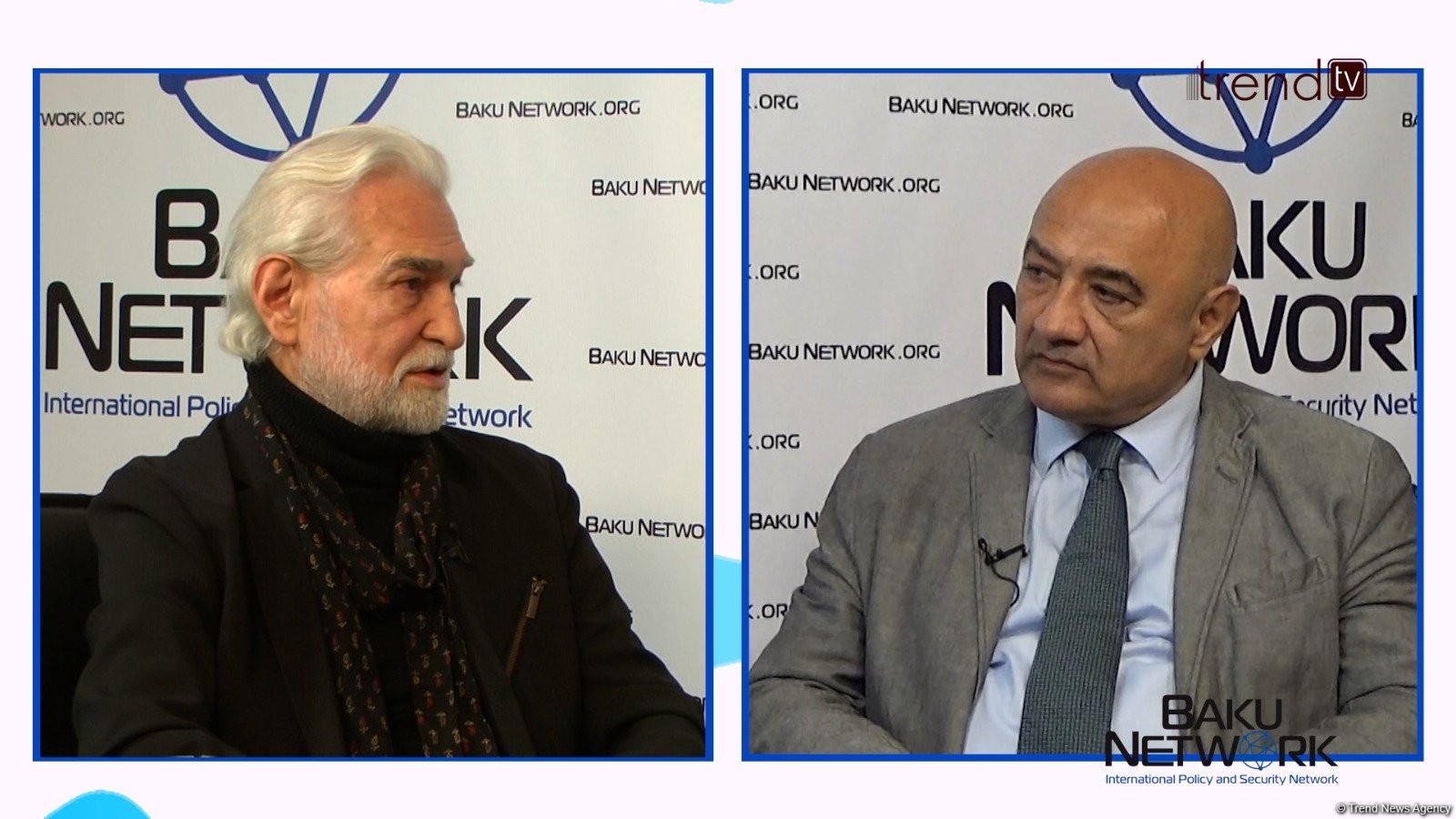
On the latest episode of Dialogue with Tofiq Abbasov, aired by the Baku Network think tank, the spotlight turned not just on politics, but on the power of the human spirit expressed through art. The guest this time: Agali Ibragimov — People’s Artist of Azerbaijan and Secretary of the country’s Union of Artists. What followed was more than a conversation; it was a soulful journey through memory, grief, triumph, and a call for peace in a fractured world.
Right out of the gate, Ibragimov set the tone. Art, he said, isn’t just about technique or training — it’s about the soul’s ability to feel and reflect. “You can paint, you can eat, you can talk,” he mused, “but it’s your soul that moves your hand. A real artist feels the pain of their people.” For him, Karabakh isn’t just a patch of land — it’s a heartbeat, a scar, a source of both pride and sorrow. “It’s honor. It’s anguish. It’s something that’s always with me,” he said, visibly moved.
One of the most powerful themes to emerge from the conversation was remembrance — especially of the Second Karabakh War. With quiet emotion, Ibragimov recounted how the unity of the Azerbaijani people — both at home and across the diaspora — turned the tide of history. “We were like one fist,” he said. “Even overseas, people felt they were part of this fight. It wasn’t just a breakthrough — it was a historic win.”
And art, he believes, played its part. Ibragimov told the story of how local artists created dozens of portraits of fallen soldiers and gifted them to their families. One moment etched in his memory: a man and his child standing before the portrait wall, while a woman gently caresses her late husband’s painted face. “You can’t put that into words,” he said, his voice cracking.
When the conversation turned to cultural policy, Ibragimov reflected on how national leader Heydar Aliyev had always paid deep attention to the arts. “He told us, ‘Don’t just show pain. Show heroism.’ That message still rings true today.”
To Ibragimov, art is a springboard into the future. “We gotta know our past — the music, the literature, the traditions. Otherwise, we’re going nowhere.” That’s why he’s deeply invested in youth outreach, organizing large-scale art exhibitions for kids as young as five. “Even if the child doesn’t fully grasp everything, the parents help. And the child — by simply painting — is already spreading a message of peace.”
On the subject of peace, Ibragimov cut through the noise of politics to speak from the heart. Despite ongoing tensions, he believes that most people — deep down — yearn for understanding and reconciliation. “God doesn’t make bad nations. There’s envy, there’s politics… but there’s also love. There are people who want to be friends. A lot of Armenians in the U.S. cry when they think of Baku. They tell me, ‘That was our life.’”
Still, Ibragimov didn’t shy away from the hard truth. The path chosen by Armenia’s leadership, he warned, is dragging the country down. “Instability, chaos, new waves of militarization — it’s a dead end.”
As the conversation drew to a close, Ibragimov left viewers with a message that transcended borders, politics, and pain: “An artist who feels nothing for the truth isn’t a real artist. We’re here to feel, to see, to create — and through that, to bring people light and hope.”
But perhaps his most powerful line came as a direct appeal to all of us: “You can’t raise kids on hate. That’s a road that’s rigged with landmines — literally and metaphorically. We’ve seen what minefields do. That’s why we’ve got to build a platform of good neighborliness. A platform of humanity.”
The show wrapped with Ibragimov’s final words, steeped in quiet optimism:
“I believe things will turn out okay. We’re united. And that’s where our strength lies.”
